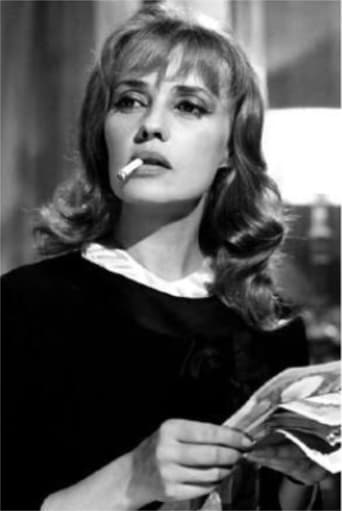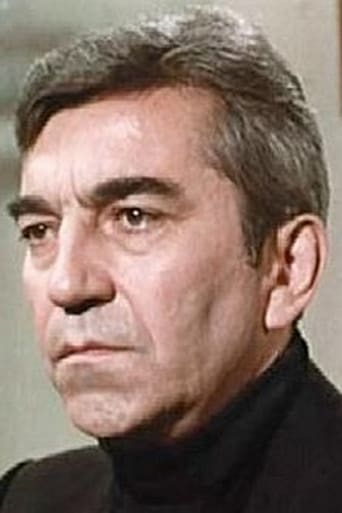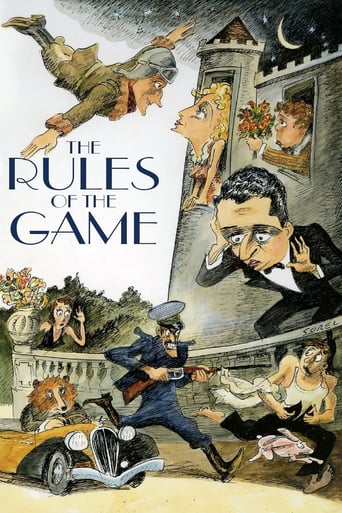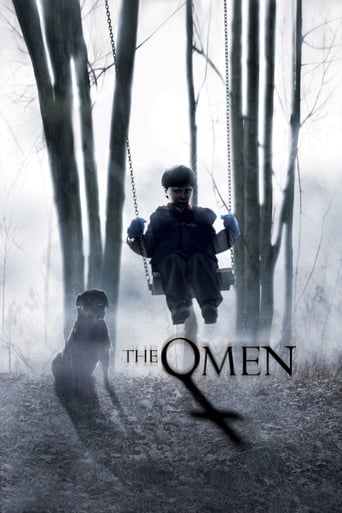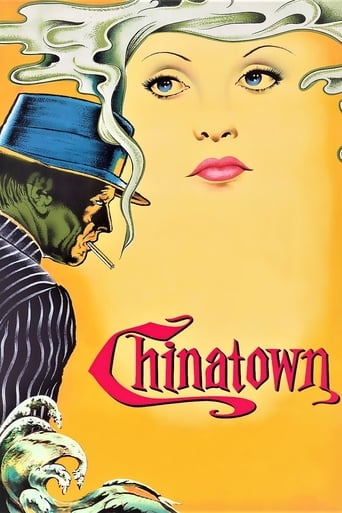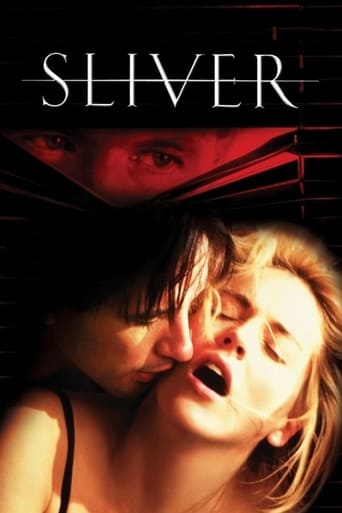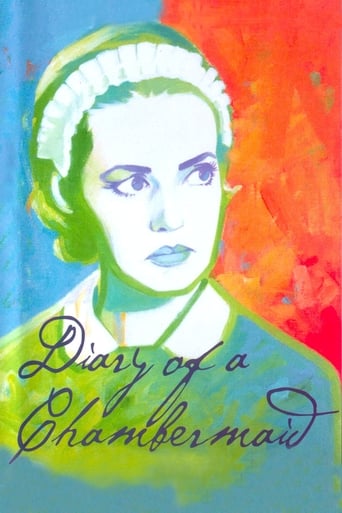
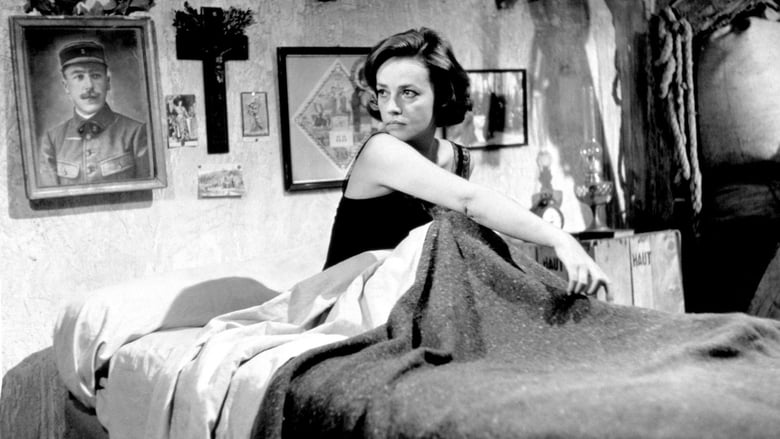
Diary of a Chambermaid (1964)
Celestine has a new job as a chambermaid for the quirky M. Monteil, his wife and her father. When the father dies, Celestine decides to quit her job and leave, but when a young girl is raped and murdered, Celestine believes that the Monteils' groundskeeper, Joseph, is guilty, and stays on in order to prove it. She uses her sexuality and the promise of marriage to get Joseph to confess -- but things do not go as planned.
Watch Trailer
Cast


Similar titles
Reviews
DIARY OF A CHAMBERMAID is a crime comedy, which on a surreal way connects a radical politics, corruption, violence, and sexual perversions. Mr. Buñuel is not making fun of some kind of tradition, he just points to the shocking background of a provincial town.Célestine is an ambitious and attractive maid, from Paris, who comes to work for a Normandy estate. Her hosts are crazed, violent and perverse. The elderly father is a harmless old fetishist, his daughter is a frigid and meticulous woman, while her husband can't keep his hands off the servants. Here are their servants and a neighbor, retired Army officer, who shares his bed with a chubby maid. Célestine must wisely choose men who surround her...The story is placed in the middle of the 1930s. A woman has completely disrupted relations and instincts between other protagonists in this film. It's kind of a surreal view on a provincial environment and the relation between a nationalism, petty bourgeois and religion.Mr. Buñuel has put a strange household in the correlation with the French social structure. Characterization is very good. Completely different characters fight, in a surreal atmosphere, to achieve their ambitions. However, the epilogue is more than realistic.Jeanne Moreau as Célestine is a smart and very capable woman. She pushes her temperament in the right direction. She has become an essential part in the lives of people and hostile environment that surrounds her. She waited patiently for the right opportunity to remove a "rotten tissue" and realize her ambition. Ms. Moreau offered very good performance.This is, perhaps a little unclear story, but it is an effective and fun experience.
French writer Octave Mirbeau's novel 'The diary of a Chambermaid' had achieved immense success due to its association with Dreyfuss affair.It was director Luis Buñuel's natural choice for a film where he could talk in detail about sexual perversity,class differences and human weaknesses.It can be said with certainty that Buñuel has succeeded as his film gives viewers plenty of opportunities to learn more about rich as well as poor people and their idiosyncrasies especially strange circumstances which enable them to behave in given situations.From a cinematographic point of view,this film's fantastic cast has made a lot of difference in the way its message got conveyed.Actor Georges Géret is able to do enormous justice to his role of Joseph as he has villainous looks. As she was already hailed as a 'sex symbol', actress Jeanne Moreau did not have to work too hard to portray the role of Célestine,a woman who makes good use of her sexual charm to win men around her.Actor Michel Piccoli didn't waste any chances to excel himself as the sympathetic representative of a corrupt,bourgeois society.
This movie is presented as "pitiless, devastating" etc, but really it is just an exercise in artistic snobbery - the characters are either two-dimensional - the gentry, who are simply symbols of lust, jealousy, or avariciousness, or one-dimensional - the servants, who are either victims or heartless. This movie is like an Ivy Compton-Burnett novel: Everyone is a caricature, who gets what she/he deserves, but what's the point? If you like stick-figures who are arrogantly set up to be knocked down, then this is the movie for you. If you like to explore humanity in all its complexity, then skip this shoddy theater piece. The only good thing is the French is clear and easy to follow, so helpful to those studying the language.
Luis Buñuel, the man considered Spain's finest filmmaker and revered master of surrealism by both critics and film historians, made a surprising change of style in the first of the series of masterpiece she did in France during his last years. Taking out his usual surrealist set-pieces, he adapts Octave Mirbeau's revered novel about social classes in a very straight-forward fashion. However, this does not mean the movie is bad as many may believe; quite the opposite, "Le Journal d'eune Femme de Chambre" is a perfect showcase of Buñuel's finest film-making style, ambiguous and stylish, like the master's own vision of life.The plot follows Celestine (Jeanne Moreau), an urban young woman moving to country in 30s France to work as a chambermaid for the Monteils, a rich family with a few dark secrets. As soon as she arrives, problems start as she tries to adapt to her new life with the bizarre Monteils. Between the constant advances of sexually insatiable Monsieur Monteil (Michel Piccoli), the always vigilant eye of his materialist wife (Françoise Lugagne) and the shoe fetish of old Monsieur Rabour (Jean Ozenne); Celestine makes her way through this collection of living portraits of the most bizarre human nature.With a plot like this it would easy to believe this is a movie where the high class is demonized and the poor sanctified, but this is not the case here. Buñuel makes sure to have an ambiguity in every character, even in Celestine herself. There is no black and white, just different shades of gray, in a way similar to the beautiful black & white photography he uses here.The photography is essential in this film; not only for aesthetic purposes, it represents the dark decadent days of 30s Europe, and the pessimism latent in both rich and poor people. As I wrote above, the shades of gray match perfectly the ambiguity of a group of characters with as many virtues as flaws. Buñuel and his cast manage to create believable and realistic characters.Jeanne Moreau gives a brilliant performance as Celestine. As the beautiful young city woman highly intelligent and not without aspirations, her character has enough room to let her shine, and she really makes the most of it. Equally brilliant is Georges Géret as Joseph, the tough gardener with fascist ideals that has a secret agenda. The rest of the cast is also very good and together with the witty script complete a superb character-driven movie.Buñuel's masterful direction creates a film that, while completely focused on the characters, is still filled with his usual symbolism. The edition and the camera-work are superb and way the camera seems to flow inside the house gives the film a voyeuristic feeling. No wonder why Buñuel consider it a very erotic film.While many people consider this movie as one of his "lesser works", I consider it to be quite underrated, as it proved that Buñuel was a master not only of surrealism, but of film-making in general. 9/10


